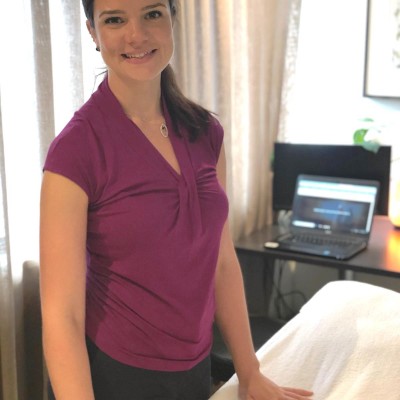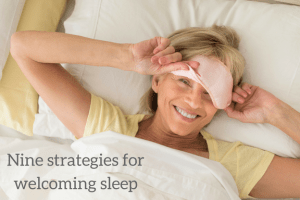
How many nights have you SWORN you would get off Netflix earlier/ stopped scrolling social media in bed/ run a bath/ rubbed lavender in your pillow/ done a guided mediation/ got a better night’s sleep?! Or perhaps you tend to lay in bed, wide eyed, coaxing yourself to drop down, only to become more restless the longer you remain awake?! If you answered yes, you are not alone! An astonishing 39.8% Australians are not getting the recommended quality and/or quantity of sleep each night, leading to increased risk of cardiovascular disease, obesity, cognitive dysfunction, poor immune regulation and higher chances of depression and anxiety during and post-pregnancy (Adams 2017). And this where yin yoga comes into play – yin for the sleep win. Let’s dive in.
Increasingly, we are living in a screen-driven, complex, and uncertain world. The prevalence of sleep problems and prescribed sleep medications actually increased between 2010 and 2016, suggesting that despite increasing awareness in the general media and medical literature about sleep, we are not making meaningful changes!
So, what can you do?
One of the first things you can do to support your sleep is to get honest and conduct a night-time audit. It is much harder to change a behaviour you are not aware of, so understanding your patterns and how they might be contributing to poor sleep comes first.
- RECORD… Track your movements between 6pm and bedtime each night for the next two weeks. Keep a record of the times you ate/ drank, what you watched on TV, amount of alcoholic drinks/ cigarettes, interactions with partners/ family/ housemates, time on your phone, reading, what you do when lying down to bed, exercise etc. Also note caffeine intake (how many coffees/ teas/ cola drinks you had during the day) Make this as detailed as possible.
- ASSESS… Each morning, record how your sleep was the previous evening – how many times you woke, if you got up during the night, how vital you feel when you wake on a scale of 1-10 (if you have a device that tracks this you could record the data as well).
- REVIEW… After two weeks, go back to your journal and notice if there are correlations between evening activities and sleep quality/ quantity.
The next step? Operation SLEEP HYGIENE
- EDIT… Start small. That is, find ONE thing you can remove from your evening ritual that might be connected to poor sleep, and introduce ONE thing that might improve your sleep.
SUGGESTIONS…
- REMOVE– Wi-Fi in your home after 9pm, scrolling on apps whilst lying in bed, alcoholic drinks, caffeine after midday, bright lighting around the home in the evening, arguments with family/ housemates, going straight from Netflix to bed, eating/ working within an hour of going to sleep, electronics in the bedroom.
- INTRODUCE– dimmed lighting for an hour before sleeping, sipping warm water in the fresh air for 10 minutes before bed, yin yoga, 10 mins of meditation, reading, a warm shower or bath, daily exercise (20-30mins), going to bed at the same time every night, removing all electronic devices from your bedroom
- REVIEW… Notice what changes for you over the following two weeks. Does your sleep improve? What are you feeling since your audit? Can you introduce another small change after these two weeks?
Including meditation and gentle yoga before bed is one simple method of reducing stress and supporting in to ‘come home’ to your body and breath. Studies have shown that including meditation, breathwork and yoga reduces stress and associated negative health effects, as well as improving sleep quality and quantity.
Yin yoga, a practice which includes long held postures targeting deep connective tissue and calming the nervous system, has shown great promise in reducing stress and ensuring good sleep hygiene.
A 2012 US study found 55% of participants who included yoga in their weekly practices reported improved sleep, and 85% reduced stress (Stussman 2015). Yoga’s ability to increase relaxation and induce a balanced mental state has also been explored, with a regular yoga practice resulting in an increase in the total number of hours slept, significantly less time getting to sleep, and a feeling of being rested in the morning (Woodyard 2011).
While there is not one definitive answer to improving sleep quality and quantity, becoming aware of our daily habits and behaviours is an incredibly important starting point in establishing what is true. By getting honest, it is possible to firstly acknowledge and then establish what changes can be made. Implementing a regular yoga and meditation practice may provide both a nourishing and supportive way to come back into alignment with our natural cycles, improve sleep and experience deep rest.
So as the sun sets on your day, watch your own habits and behaviours as you prepare for sleep. Will you be winding down with nature and following your natural rhythms supported by yoga and mindfulness? Or will you scrolling mindlessly, yearning for deep restoration but unwilling to make changes… The choice is yours.
Written by Jane Holland
Jane Holland is a respected yin yoga teacher, international retreat facilitator and educator. She is the creator and facilitator of our current “Deep Sleep” series – yin yoga for restoration.
References:
Woodyard C. Exploring the therapeutic effects of yoga and its ability to increase quality of life. Int J Yoga. 2011;4(2):49-54. doi:10.4103/0973-6131.85485
(Stussman BJ, Black LI, Barnes PM, Clarke TC, Nahin RL. Wellness-related use of common complementary health approaches among adults: United States, 2012. National health statistics reports; no 85. Hyattsville, MD: National Center for Health Statistics. 2015.)
Adams RJ, Appleton SL, Taylor AW et al. Sleep health of Australian adults in 2016: results of the 2016 Sleep Health Foundation national survey. Sleep Health 2017;3:35-42
Daukantaitė D, Tellhed U, Maddux RE, Svensson T, Melander O. Five-week yin yoga-based interventions decreased plasma adrenomedullin and increased psychological health in stressed adults: A randomized controlled trial. PLoS One. 2018 Jul 18;13(7):e0200518. doi: 10.1371/journal.pone.0200518. PMID: 30020987; PMCID: PMC6051627.





